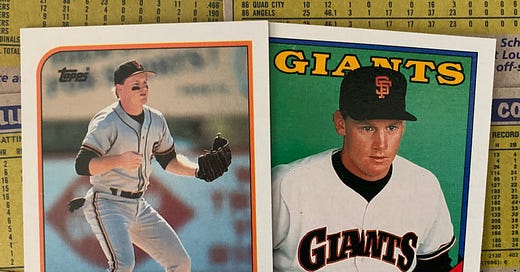A car collector opens a garage and reveals a fleet of classic automobiles. Maybe you’re handed the keys, maybe you are taken for a drive, maybe you’re not even allowed to kick the tires. However the scenario plays out, that car will return to wherever you first found it.
An art collector proudly hangs pieces on the walls. You are welcome to look, but please do not touch. For the most part, the paintings never move. Have you checked Mona Lisa’s Fitbit lately?
A wine collector knows that every bottle acquired will ultimately be shared. There’s an inherent generosity among this group, a social inclination to create a shared experience.
I sniffed this culture during my years as an editor at Wine Spectator. I didn’t fully drink it in until I worked in baseball.
There’s something about the team atmosphere — you win together, you lose together, you drink together.
During my wine journalism days in New York, archaic interstate shipping laws made it illegal to receive wines directly from California wineries. If it wasn’t on the shelves of a local wine shop, buying a bottle to have at home was more or less impossible.
One day, somewhere between procrastinating and daydreaming from my Manhattan cubicle, I signed up for the mailing list of an emerging California winery, Sea Smoke, located in Santa Barbara’s Santa Rita Hills. It was a smaller-production operation that wouldn’t enter the traditional retail market, and production quantities limited the number of customers and overall allotments.
Occasionally, I’d receive notification of an annual purchasing opportunity, but my NY address — not to mention overall living expenses — prevented me from taking action.
A one-way itinerary on JetBlue transformed those daydreams into reality. I was working for the Padres and living in San Diego.
When I received my Sea Smoke allotment as a California resident, I ordered a few bottles. It was celebratory and obligatory; I owed it to the kid in the cubicle.
I repeated this act annually. And I saved my few bottles for perfect occasions that only occasionally materialized. I don’t say this seeking pity.
No, I eventually realized that opening a good bottle of wine made for a perfect occasion. I learned this in baseball, from Kevin Towers and many others who understood the power and promise in sitting around an open bottle of wine.
By the time I got to Arizona, some six vintages later, there was Sea Smoke to share.
Against the constant movement of a baseball season, team flights provided time to slow down. I packed accordingly.
Seated onboard amongst the coaches, where the indulgences included Coors Banquet Beer and Pinot Noir, I learned to appreciate the beauty of sharing wine. Most of the time, our days were spent trying to win that night’s game while also keeping an eye on tomorrow.
On these flights, the wine served as a portal to a different destination — a chance for the conversation to turn reflective, nostalgic, or otherwise personal. It helped add an additional dimension to otherwise singularly focused alphas.
Two of my favorite wine-drinking companions, Glenn Sherlock and Matt Williams, find themselves in opposing dugouts this Wild Card weekend.
Sherlock, an original Diamondback who spent 19 seasons on the Arizona coaching staff, serves as Buck Showalter’s bench coach with the Mets.
Williams, who hit 378 home runs over a 17-year Major League career, is the Padres third base coach.
Both men would spend a good portion of any flight discussing workout plans in our destination cities. Each had a fierce commitment to their physical well-being that, to me, fed the mental discipline required to show up with purpose every day of the season. Quietly, for no one but themselves, they pushed their limits.
There was one flight when I might have only been a glass of wine away from agreeing to enter a triathlon with them. I was definitely considering it, and even that was a bad idea.
Let’s just say I’ve always been more of a shallow-end swimmer.
This Mets/Padres series is likely to be determined by names like Scherzer, deGrom, Darvish, and Snell, yet the Padres’ third base coach might find himself in the middle of the action.
Run-scoring opportunities will be hard to come by against Mets pitching, and I expect the Padres to be aggressive on the base paths. San Diego will need to force the action.
We’ve all seen what Max Scherzer can do when he’s on. With that in mind, I’m looking forward to the top of the first inning today.
In 2009, when the Mets opened Citi Field, the Padres were the first team to visit. Center fielder Jody Gerut led off the game, and on the third pitch ever thrown in the ballpark, he homered.
Juan Soto and Manny Machado will get their initial chances to impact the game in the first inning against Scherzer. In this short, best-of-three series, those first at bats can set the tempo.
This is the October baseball we’ve been waiting for.




